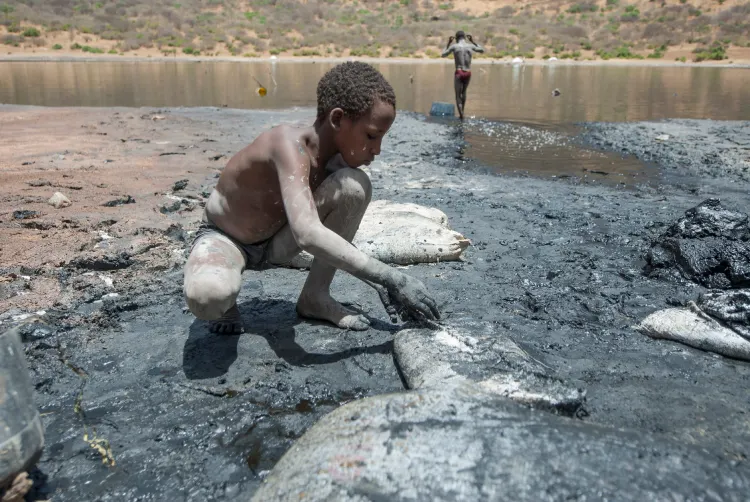
Big Tech and Child Exploitation in Cobalt Mines: Ethical Challenges for the Clean Energy Industry
With the growing global demand for electronics and electric vehicles, cobalt is emerging as a key ingredient in lithium-ion batteries used in these technologies.
While cobalt is a key part of the transition to clean energy, there is a dark face to the mining process, with big tech companies coming under fire for linking their supply chains to child labour in DRC mines.
Amnesty International report: Child labour in cobalt mines
In its latest report, Amnesty International has revealed disturbing facts about labour conditions in Congo’s cobalt mines, where children are exploited to work in harsh conditions.
Cobalt, an essential metal in the battery industry, is mainly mined in Congo, which contributes about 60% of the world’s total cobalt production, and while countries and companies are increasingly committed to keeping pace with the transition to clean energy, this requires the availability of minerals such as lithium and cobalt, which puts more pressure on these mines and increases the demand for them.
According to the report, children in the Congo work in hazardous conditions, where they are forced to extract and sort cobalt by manual means, and in an environment full of dust and toxic gases, and the report indicated that some children working in mines are between the ages of 4 and 10 years, which represents a flagrant violation of children’s rights, according to international standards.
Tech companies and repeated accusations
The report also showed that some major tech companies, which lead the smartphone and electric vehicle market, are directly or indirectly involved in supply chains containing cobalt extracted from Congo.
While some companies deny links to Congolese cobalt, most have reportedly been unable to confirm that their chains are free of cobalt produced through child labor.
This is one of the major ethical challenges facing these companies, as consumers find themselves facing questions about the social responsibility of these brands.
Statistics and role of international organizations
UNICEF estimates that the manual mining sector in the Republic of Congo employs tens of thousands of people, including about 40,000 children. These mines operate in high-risk environments, where simple equipment and manual drilling equipment are used, with no protection. These areas also suffer from a lack of government oversight, allowing for an increase in cases of child exploitation and violations of workers’ rights.
International organizations such as UNICEF and the International Labour Organization (ILO) are seeking to highlight the issue, calling on large companies to take concrete steps to ensure that cobalt extracted from child labour is not used in their products. They also call for the implementation of stricter laws in importing countries, to ensure that supply chains are ethical and conform to human rights standards.
Sanitary and environmental conditions of mines
The CBS News report points to the difficult conditions in cobalt mines for workers, both children and adults.
Continued exposure to cobalt dust and inhalation of toxic fumes lead to serious health risks, including chronic lung disease that can lead to death.
Working long hours in high temperatures and under great stress without protective equipment makes them vulnerable to accidents and injuries.
The environment around the mines suffers from severe pollution as a result of the use of harmful chemicals.
These materials are seeping into local water sources, threatening the lives of communities near mines, posing another challenge that companies must find solutions to keep these areas safe.
Global companies and the need for transparency
Although some companies have begun to take steps to improve transparency in their supply chains, by verifying the source of cobalt used, these efforts have yet to have a tangible impact on the ground.
Companies face multiple challenges, including the complexity of international supply chains and the difficulty of verifying the sources of raw materials in poorly controlled environments, such as Congo.
Human rights activists hope that growing pressure from consumers and civil society organisations will push companies to adopt more responsible sourcing practices.
With growing community awareness, there are strong calls for companies to check their supply chains and invest in programs that help improve the living conditions of miners, especially children.
Steps towards ethical and sustainable mining
Some are developing new technologies to extract minerals in safe and sustainable ways, such as mining using robots and modern mining equipment, which can reach great depths without having to risk human lives.
Those interested in ethical mining are also seeking to promote educational and training programs for families and communities in areas whose economy depends on mining, to offer alternatives to children instead of working in mines.
Finally, this situation requires urgent action by governments and businesses alike.
As countries move towards clean energy, this transformation must take place in a way that respects human rights and commits to their social and moral responsibilities to the communities on which they depend to provide these precious resources.

